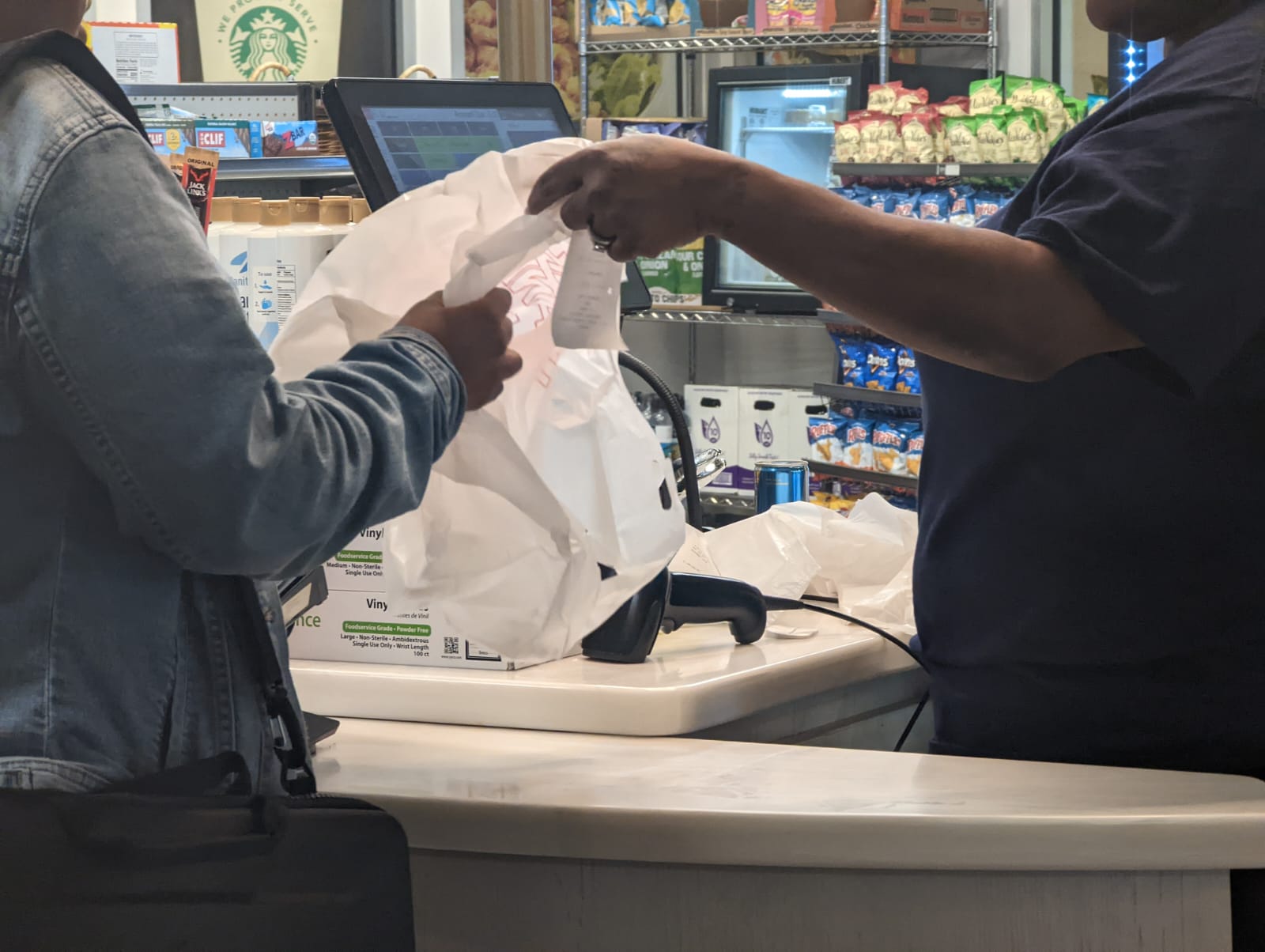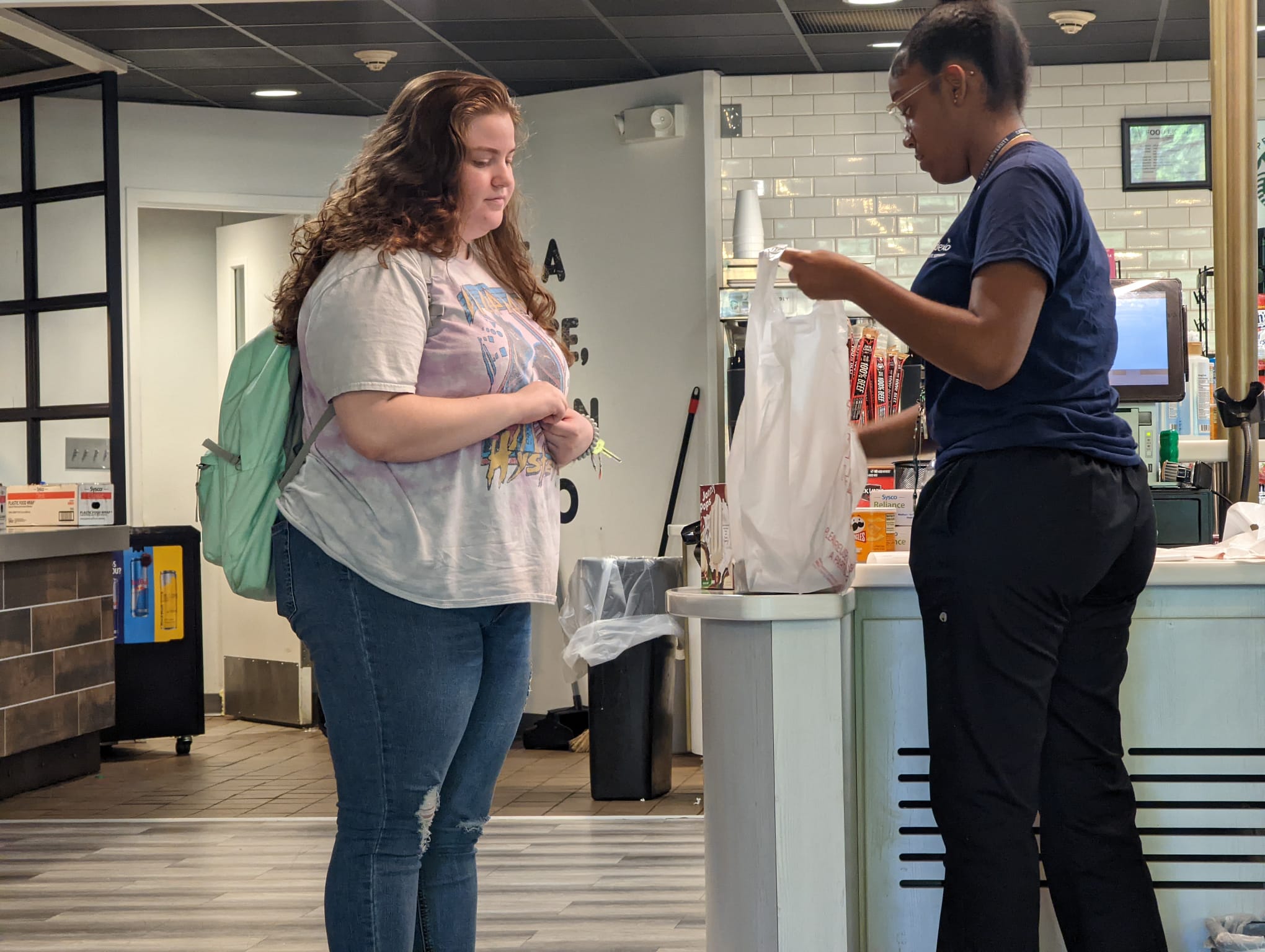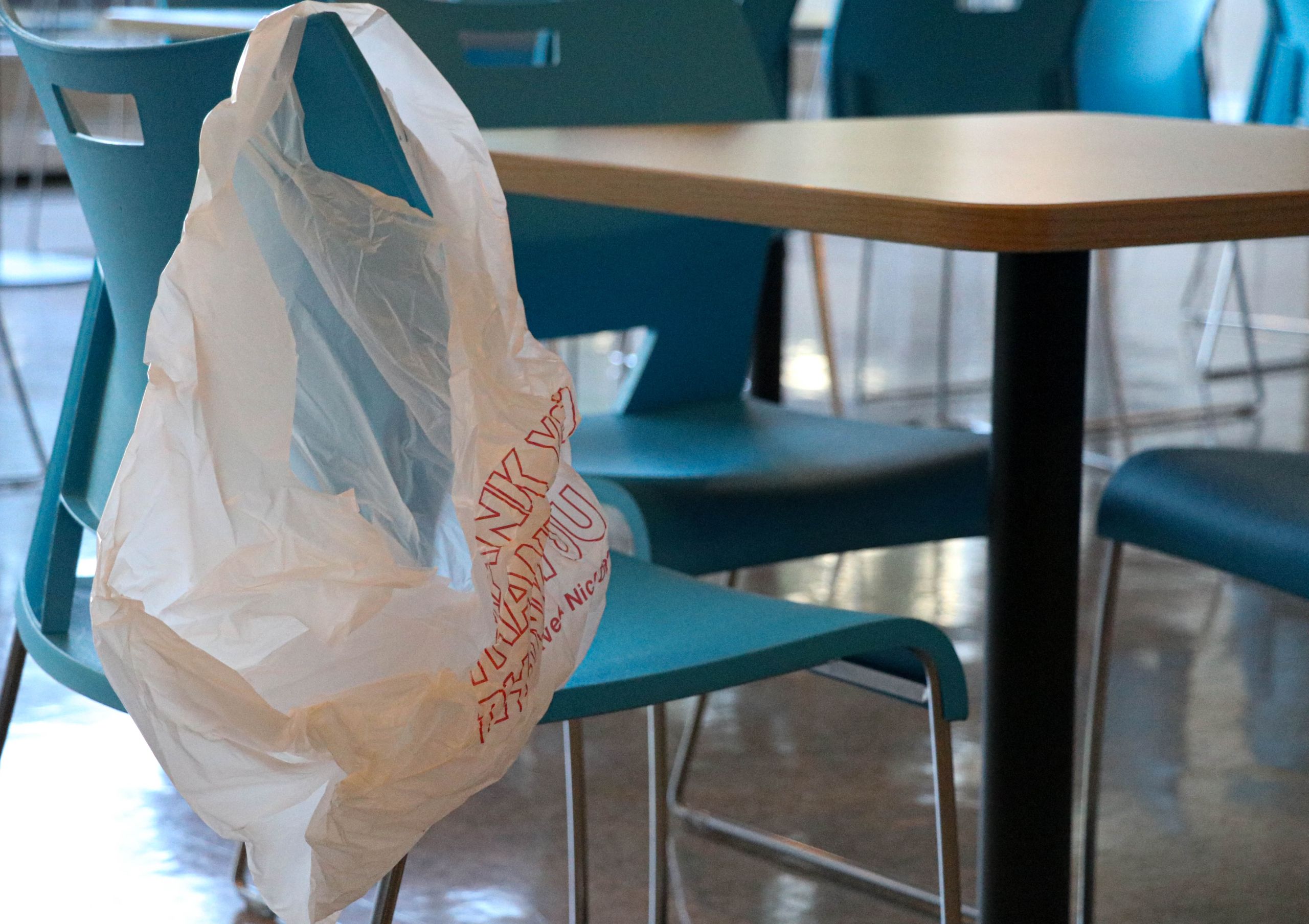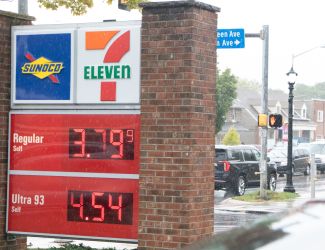Cabrini students might have noticed the lack of plastic bags on campus lately. It’s no coincidence. On Sept. 15, Radnor Township put into effect its plastic bag ban.

Radnor Township has joined many other municipalities in banning single-use plastic bags. All businesses in Radnor have a six-month warning period, after which, they must stop using plastic bags and switch to paper.
Each paper bag will cost 10 cents; however, there are exceptions to package uses for produce, meats, bakery goods, and other goods.
Businesses that might experience a burden will be eligible for exemptions. The township hopes customers will rely not on paper bags, but rather on reusable bags.
The environmental effects
“Definitely bringing your own bag is the best way to reduce waste and reduce your carbon footprint,” Dr. Caroline Nielsen, professor of biology and environmental science at Cabrini University, said.
Plastic bags cause huge concerns for municipalities because they get trapped in branches and clog the storm drains. This is financially draining to the township because Radnor must pay for labor to clean it up.
Plastic bags also negatively impact the environment. First, they take a long time to decompose. Second, toxic substances from plastic bags are dispersed into the soil and air.
Third, the food chain is now contaminated with plastic, which includes plastic bags. Microplastics are ingested by animals. Those microplastics are also absorbed when they are digested. This is called the trophic transfer of microplastics.
Nevertheless, producing paper bags yields four times more energy than producing plastic bags.
“More trees are going to come down, and anything that we can use instead of paper bags or plastic bags will be better for the environment,” Christine Colon-Smith, freshman biology major, said.
Destroyed habitats and displaced animals increase predation risk and decrease food availability. Deforestation affects climate change by increasing greenhouse gases.
The effects on consumers
In basic economics, when products are given freely, consumers are more likely to waste them. If paper bags were given freely, there would be no incentive to conserve them, which would cause more waste.
“I think a fee makes a lot of sense,” Nielsen said. “Instead of two bags, maybe I can fit all my groceries in one bag if it’s going to cost me an extra 10 cents to get the second one.”
Nielsen believes that a fee is a good way to internalize an externality. In other words, it involves assigning a cost to a harm that would not otherwise have one, which will cause consumers to become more conscientious when shopping.
“I know that it’s hard on consumers who are trying to save money, but I think there are other ways to address that problem,” Nielsen said.
There is another option instead of paper and plastic bags: reusable bags.
Reusable bags last much longer than single-use plastics and are more resilient than single-use plastic bags.
The effects on Cabrini students
This will affect Cabrini students when purchasing items on and off campus. Plastic bags are no longer distributed in Cabrini Cavs Corner, but The Grill still uses plastic bags. The process of transitioning them out has begun.

“It’s going to be a little bit complicated at first,” Joseph Lutz, area executive chef of Cabrini University, said.
Students may find it difficult to carry items around campus because they have been using plastic bags to carry their food and other items.
“It’s going to be a quick change,” Lutz said.
Lutz believes that Cabrini students will be able to adjust to the new regulations. Discussions continue about whether the Grill will hand out paper bags.
Hopes for the policy
“It’s easy to go through your day just buying stuff and doing the things that you do without ever thinking about how those choices affect the environment,” Nielsen said. He hopes that this policy will encourage people to become environmentally conscious.
“Honestly, in terms of our total impact on the environment, plastic grocery bags are not high on the list,” Nielsen said.
Other choices are made that have a greater negative effect on the environment. For example, automobiles, air travel, heating, and cooling. Nielsen hopes that people will begin to consider the effects of other decisions on the environment.
“Little by little we move toward more sustainable choices,” Nielsen said.






